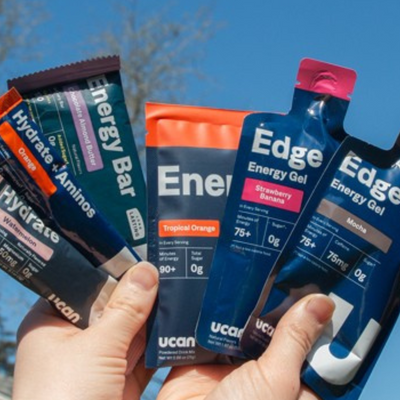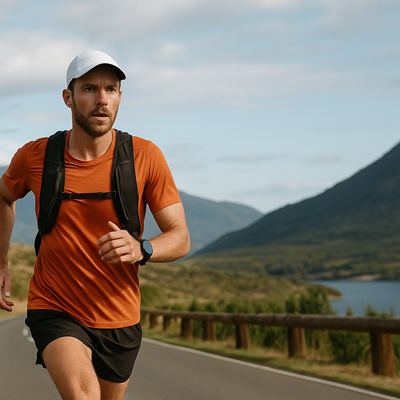By Greg McMillan, Running Coach & Exercise Scientist
"Bonking" or "hitting the wall" are both commonly used terms to describe a sudden and sharp drop in mental and physical energy during exercise. For anyone who's ever bonked during a workout, the feelings of dizziness, heavy legs and brain fog are things you want to avoid at all costs! Here are my top 5 training & nutrition tips for runners to help you avoid the dreaded bonk.
1. Keep Your Blood Sugar Stable
Your blood sugar levels determine your energy levels. When your blood sugar fluctuates, your energy does the same. If you have big swings in energy, you are much more likely to become fatigued during a sustained effort. Fueling before your run with simple carbs like bananas, bagels & sports drinks or gels will cause a big initial spike in blood sugar, followed by a crash. Fueling with slower-burning carbs before your run will help keep your blood sugar stable, giving you steady energy for a longer period of time. Try a serving of UCAN Energy powder, powered by LIVSTEADY, 30 minutes before your run for steady, long-lasting energy with no spikes and no crash.2. Happy Brain = Happy Body
If you have a significant drop in blood sugar, then your brain will not be happy and it will start to tell you that you can’t continue. This can be one of the causes of hitting the wall. If you can keep your brain happy so it doesn’t perceive your race pace for the race distance as a significant threat, it will help power your body along to the finish. Finding a fueling strategy that keeps your blood sugar stable will help ensure that your brain stays happy too!3. Become a Better Fat Burner
We all have exponentially more stored fat available as fuel compared to stored carbohydrate (glycogen). By restricting the intake of simple sugars before and during long workouts, you can tap into your body's fat stores and use them to fuel your workout. Pairing this nutrition strategy with long, slow runs or carbohydrate depleted runs for advanced runners promotes efficient fat burning. Avoiding blood sugar & insulin spikes post run also promotes better fat burning, so try to avoid the simple carbs and sugary foods immediately after a workout to keep the fat-burning going!4. Find and Improve Your Bonk Point
To find your bonk point, see how long it takes to run until exhaustion in training. Bonking isn’t just about fatigue. It’s the point where you cannot maintain your pace and have slowed significantly. To improve your bonk point, start challenging it every seven to 14 days. Advanced runners, who have proven that they can complete a distance and want to finish faster, can improve their bonk point with no-carb runs lasting 80 to 90 percent of their bonk point.5. Happy Stomach
A lot of runners find that their stomach can’t handle the traditional fueling recommendations of taking in fast-acting carbohydrates like sugar-based gels, chews, and drinks every 15-20 minutes. That same gel that tasted great at mile 3 often doesn't taste the same at mile 12. When you experience GI distress during a sustained effort, it's difficult to consume the fuel you need and his puts you at a much higher risk of bonking.
Many of the athletes I coach fuel with a slow-burning energy source like UCAN pre-run, which allows them to refuel less frequently during the run. A typical UCAN fueling strategy includes 1 serving of the UCAN Energy powder or UCAN Edge 30 minutes pre-run, and an additional serving every 75-90 minutes during the run. So you're consuming fewer calories and minimizing your chances of GI distress, but you're still able to maintain steady energy levels.
Greg McMillan is a runner, exercise scientist, and coach with the unique ability to combine the science of endurance performance with the art of real-world coaching. He has worked with Olympians, Boston Marathon qualifiers and new runners training for their first race. The bulk of his athletes are everyday runners balancing work, family and other commitments with their running. He coaches runners through his website mcmillanrunning.com








